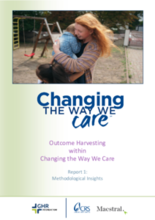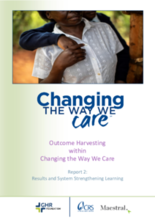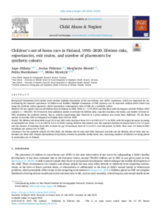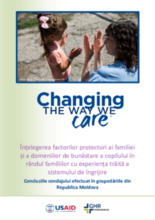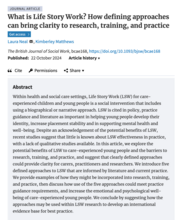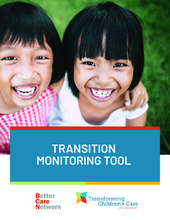Displaying 1 - 10 of 565
At the close of the Changing the Way We Care (CTWWC) The Changing the Way We Care (CTWWC) initiative launched in 2018 with the aim to reform child care systems by promoting safe, nurturing family-based care over institutional ca
At the close of the Changing the Way We Care (CTWWC) The Changing the Way We Care (CTWWC) initiative launched in 2018 with the aim to reform child care systems by promoting safe, nurturing family-based care over institutional ca
Using nationwide register data from Finland (1980–2020), this study shows that the lifetime risk of children entering out-of-home care more than doubled, with a notable rise in residential care placements. At the same time, the average duration of care shortened, and the likelihood of children returning home before age 18 increased significantly.
The VACS Data Dashboard is a comprehensive online tool designed to provide easy access to data from the Violence Against Children and Youth Surveys (VACS) across more than 20 countries.
In this commentary, two examples of how research often cited in calls to eliminate residential care has been inappropriately overgeneralized.
Un aspect esențial al misiunii CTWWC, constă în acumularea și prezentarea evidențelor ce vizează reforma sistemului de îngrijire, în special aspectele referitoare la tranziția copiilor din îngrijirea rezidențială și reintegrarea în propriile familii sau plasamentul în îngrijire alternativă de tip familial și prevenirea separării sau reseparării copiilor de familie. Astfel, pentru acumularea informațiilor concludente, CTWWC a efectuat un sondaj al gospodăriilor în rândul familiilor care au beneficiat de suport în cadrul inițiativei, cu scopul de a informa autorităților publice și practicienii care activează în acest domeniu.
On November 20, 2024, the Evidence for Impact Working Group as part of the Transforming Children’s Care Collaborative hosted the "Building Evidence to Impact Care Reform - Challenges and Le
This briefing looks at what data and statistics are available about children in care to help professionals, and the organisations they work for, make
evidence-based decisions.
In this article, the authors explore the potential benefits of Life Story Work (LSW) to care-experienced young people and the barriers to research, training, and practice, and suggest that clearly defined approaches could provide clarity for carers, practitioners and researchers.
The purpose of the tool is to assist technical support practitioners to closely track and monitor the progress of residential care services transitions they are involved in. It can be used as a workplan to guide the implementation of a transition strategy, allowing practitioners to identify relevant transition activities, set progress-related goals, and monitor progress against those goals.

